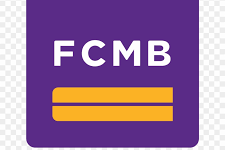INVESTING IN COOPERTIVE SOCIETY IN NIGERIA
A Smart Path to Wealth Growth
INVESTMENT
Dr. Ayo Adeyi
8/26/20252 min read


For many Nigerians, the word “investment” brings to mind stocks, real estate, or fixed deposits. But beneath those well-known options lies a trusted, community-driven model: cooperative societies. These member-owned groups pool resources, provide affordable credit, and create opportunities for wealth building. Unlike banks, they are rooted in trust and shared goals, which makes them both accessible and practical for everyday people.
Why Cooperative Societies Matter
The appeal of cooperatives in Nigeria lies in their simplicity. Members contribute fixed amounts monthly or weekly, some even take investors who invest annually, These funds are then loaned out at fair interest rates to members and other borrowers who need capital for business, school fees, rent, or emergencies. Profits are later shared among contributors and interest paid to investors.
For example, Mrs. Bukola, a female wears fashion store owner in Garki 2, Abuja joined Bloom Thrift and Credit cooperative Society in Abuja. By investing N5,000,000 annually, she qualified for a loan worth three times her savings. With it, she expanded her fashion store to Kubwa, Abuja and now sells wholesale. Her profits doubled within a year, and she still receives annual interest payment from the society. For someone who might have been turned away by commercial banks, the cooperative became her launchpad.
Accessibility for Everyday Nigerians
Unlike banks that often demand landed property collateral and paperwork, cooperatives rely on trust, moveable assets as collateral. This makes them particularly valuable to business people and even civil servants.
Take the story of Yusuf, a commercial transporter in Karu, Abuja. He and other transporters formed a partnership and approached Bloom Thrift and Credit Cooperative Society for a loan to buy an 18-seater coaster bus. By pooling funds, they negotiated they were able to pay of the interest and principal, cutting costs drastically. Today, Yusuf makes loads of profit from his transport business , earns more, and no longer worry about taking more loans.
Investment Returns Beyond Money
Cooperatives also offer social good. Bloom Thrift and Credit Cooperative Society for instance conduct a monthly Pitch4Funds program that help startup founders attract investors to fund their business ideas. This blend of financial and social capital explains why some Nigerian investors prefer to invest in Cooperative Society.
Financially, the returns are competitive. Many cooperatives pay annual interest of 10–25% depending on the strength of their investments. Compare this to traditional savings and fixed deposit accounts, where interest rates often sit below inflation, and the attraction becomes clear.
Risks and Caution
Of course, not all cooperatives are created equal. There have been cases where poorly managed societies collapsed, leaving members stranded. The infamous case of a Lagos-based cooperative in 2019, where leaders absconded with millions, is a reminder that due diligence is vital. Members must check registration status, governance structures, and transparency before committing funds.
The Future of Cooperative Investing
With Nigeria’s growing middle class and digital innovations, cooperatives are evolving. Some now run apps that track contributions and loans in real time, boosting trust and efficiency. As inflation continues to eat into savings, cooperatives remain a reliable way for most Nigerians to grow wealth, build resilience, and take control of their financial future.
Final Word
Investing in cooperative societies is not just about money—it’s about community, trust, and shared progress. From business women in Garki 2, to commercial transporter in Karu, Nigerians are proving that when people come together with discipline and vision, financial empowerment becomes possible for everyone.





